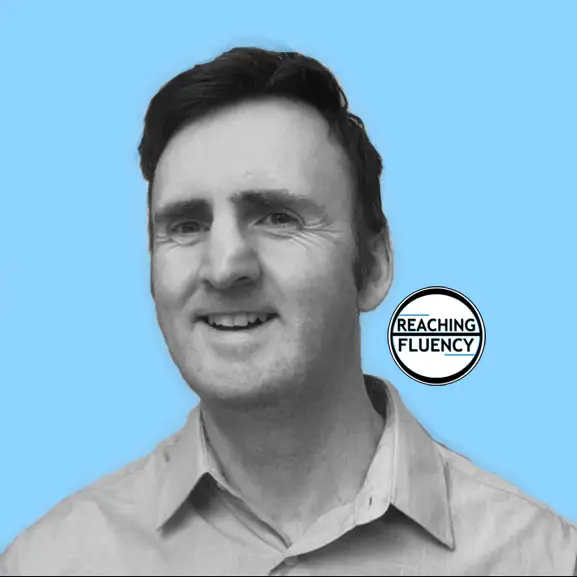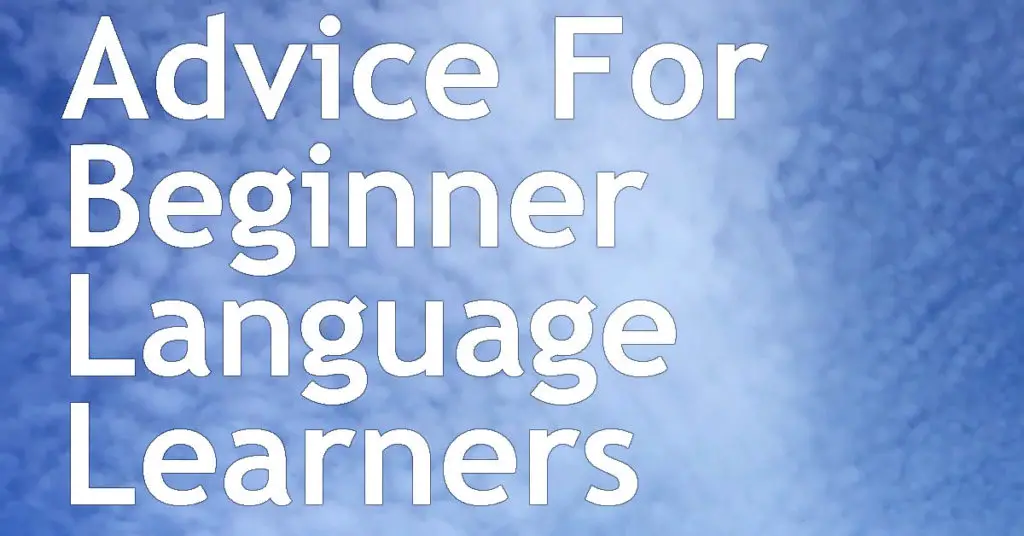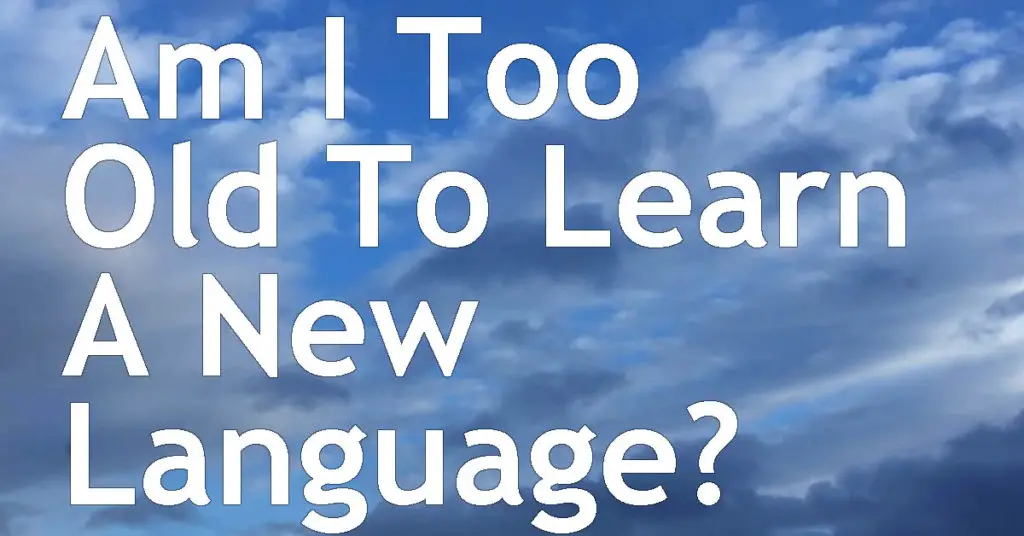Knowing how long it takes to learn a language is a hard question to answer.
It can take a long time through classroom learning, but it can take even longer if you are using the immersion method. The main problem is that everyone’s experience will be different, so it can be difficult to actually give a clear answer.
I will go through some things that you can take into consideration when trying to work it out, but really you need to put thousands of hours into a language and the quicker you can do that, the quicker you will start understanding things, but really it is just going to take as long as it takes.
Don’t worry about the time, just do the work and it will happen.
Page Contents
Immersion Is A Much Slower Process
In general, immersion is a slower process than other methods of learning. This is because it is being done at a subconscious level, so you cannot really control the speed that your brain works.
However, it may be slower, but this is because you are processing a lot more and the end result reflects this.
You brain will be trying to process the whole language all at once and it takes time to get through all this information and to make sense of it, where as other methods may only dive into a small portion of the language, so you get faster results, but the quality of your knowledge is not as strong.
It’s Hard To Give An Exact Time Frame For How Long It Will Take With Immersion
There are so many different factors that can affect the outcome that it is nearly impossible to say how long it might take you. The real answer is that it will take as long as it takes, and you just need to focus on doing the work.
How long it actually takes is irreverent, but I will go through some of the things that will affect the amount of time it might take you. Some of these things you can control, others you cannot.
Just do the work and the language will come.
(You can read more about – How Does Language Immersion Actually Work?)
It Will Depend On How Much Immersion You Do
The real secret to how long it will take you to learn the language comes down to how much immersion you do.
The reality is that you need to put in a lot of hours, literally thousands of them.
If you want to see results faster, then you just need to do these hours a lot faster. It’s as simple that.
We can both immerse everyday and if I only do 1 hour a day, it may take me a few years to see some results …If you do 10 hours every day, you will see results a lot faster, maybe even within a few months.
If you want to see progress, stop worrying about how long it will take and start worrying about how much you can do every day. The higher that daily number is, the quicker you will have results.
It Depends How Often You Are Immersing
You need to also consider how often you are immersing. Ideally you need to be doing it daily, hopefully throughout the day.
This is going to be most optimum way to do things. Your brain is going to be constantly getting exposed to the language and as there is such a small amount of time in between these exposures you are going to be able to build up some good momentum.
If you are only immersing every once in a while, like once a week or something, you are just never going to get that momentum going and you are just never going to get enough exposure in to see results.
I really believe that this needs to be a daily thing, I think that is nonnegotiable.
(You can read more about – How Many Hours A Day Should You Dedicate To Language Learning?)
It Depends On What Language You Are Learning
The language you are learning will also play a large part in how long it is going to take you to get fluent.
Some languages are just a lot more closely linked to your native language and so you can conquer these a lot faster.
I have used immersion to learn both French and Japanese and can assure you that Japanese needs way longer to get the same results.
French is certainly hard, but so much of the language kind of sounds similar to English that it does make a difference for long it takes to learn. We have so many similar words with French that your brain can quickly decode things and while it may be hazy, you will kind of know what is going on, even when you are just starting out.
Japanese is the total opposite, nothing is similar and it will just take a lot longer to make sense of things. It not impossible, it just takes longer.
It Will Depend On You and Your Individual Circumstances
You also need to consider that you are an individual and your circumstances are going to be very different than everyone else’s. This is going to be both right now and in the past.
If we look at your past, this can affect how long it takes for you to learn, you may have had exposure to other languages. Knowing one language already can really change how quickly you can learn another one.
Then if you look at your situation now, this too can affect how long it will take you. Are you able to spend 10 hours a day just immersing, or do you have other commitments and stress in your life that are going to slow down your learning and what about your motivations, this could be very different to the next person and it can all make a difference.
(You can read more about – Mistakes You Might Be Making When Learning A Language Through Immersion)
Making Things Comprehensible Will Speed You Up
You also need to consider what you are actually doing when you are immersing.
You can just immerse and it will take a long, long time to see any progress, or you can do other things on top to help make your material more comprehensible, such as learning vocabulary.
If you think about it, it makes sense. If you are just watching shows then you need to hear the words 100s of times to work out what they mean. You are also going to have to watch really basic stuff, usually kid’s shows. They are going to be speaking slowly and pointing at things while speaking. Hopefully you can work out what is going on and if you do enough of this …you will understand eventually. This is exactly how kids learn.
However, you are an adult; you can understand things a lot easier. You can just use Anki to learn new words.
You can learn the word for “Ball” in like 2 seconds ….or you can watch the kids shows and have them hold a ball and say “Ball” 300 times while pointing at it …and hopefully you connect the audio and visual to work out that “ball” means ball.
Why slow yourself down, just learn the word separately and then when you hear it when you are watching something, you know what it means.
Making things comprehensible like this really makes a difference and will really speed up your progress.
It Will Takes As Long As It Takes
The reality is that it just takes as long as it takes. You don’t need to worry about how long it is going to take you, as really you are always going to be learning.
Even when you reach a high level and can talk about anything, you are still going to feel inadequate and you will want to get better.
Just put the work in and enjoy the journey, the more you do, the more you are going to enjoy it and this is what learning a language is all about. You have to enjoy slowly decoding everything and unlocking new words, rather than being caught up in some end goal.
So long as you are immersing, you will see results. Just do as much as you can and it will start to fall into place and if that takes longer than you expected, so be it, there is no rush.
(You can read more about – How Do You Maximise Your Language Learning Immersion Experience?)

Ian is the owner and main writer of Reaching Fluency. He is a native English speaker, French speaker and Japanese learner and general lover of language learning.
You can read more about him on his Authors Page or link with him on social media
日常英会話メール
ニュースレターを購読してください! - 参加無料
メールリストに参加すると、少なくとも週に 1 回 (場合によってはそれ以上) メールが届きます
メールは毎日の英会話で、読んで勉強することができます。
メールは短いですが役に立ちます。いつでも停止できます



Pingback: Is Learning A Language Through Immersion Effective? – Reaching Fluency
Pingback: Is Immersion The Best Way To Learn A Language? – Reaching Fluency